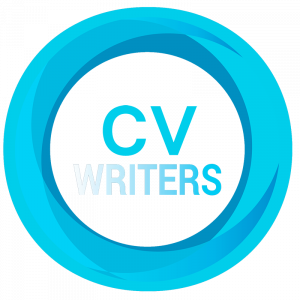
Introduction
Your resume serves as your professional introduction to potential employers, and it is crucial to make a strong first impression. One way to achieve this is by crafting an effective professional summary and career profile. They serve as your pitch for the role you want to acquire next, highlighting your unique value proposition and qualifications.
In this blog post, we will explore the importance of creating a professional profile, provide tips on how to write a professional summary for a resume, profile in a resume, and discuss the resume profile examples and benefits they offer to job seekers.
Understanding Professional Summaries and Career Profiles
Definition and Purpose of a Professional Summary in Resume
A professional summary in a resume is a concise paragraph that highlights your key qualifications, skills, and experiences. It serves as a snapshot of your professional identity and acts as a hook to grab the attention of hiring managers.
Differentiating Between a Career Objective and a Professional Summary in a Resume
Unlike a career objective, which focuses on your goals, a professional summary on a resume emphasises what you can bring to the table and how you can add value to the organisation.
Career Objective Vs Professional Summary
In most cases, a career objective is unnecessary. Employers are more interested in their own needs rather than your goals.
A career objective can also be risky if it doesn’t align with the employer’s offerings. However, a career objective can be used to address specific concerns or questions. For example:
“Seeking an entry-level role following migration to Australia.”
or
“Seeking a career change to move into a finance role following a planned career break to be a parent.”
Benefits of Including a Professional Summary on a Resume:
Captures Attention:
A well-crafted professional summary on a resume immediately captures the attention of recruiters, encouraging them to read further.
Showcases Your Strengths:
It allows you to showcase your unique strengths and what sets you apart from other candidates.
Demonstrates Relevance:
A tailored professional summary highlights your relevant skills and experiences that align with the job requirements, increasing your chances of being shortlisted.
Understanding the Personal Value Proposition (PVP): Enhancing Your Professional Summary
A Personal Value Proposition (PVP) is a promise of value to be delivered that describes your areas of expertise and experience, making you attractive and valuable to recruiters, teams, and managers. It is one of the most important interview tools that should be prepared and well-rehearsed before stepping into any job interview. Within the realm of PVP, there are two main types: Professional Value Propositions and Competency Value Propositions.
Professional Value Propositions:
Professional Value Propositions serve as high-level executive summaries that highlight why you should be hired or interviewed for a specific profession or target job title. They are your most essential tool for selling yourself effectively. Typically, you have one Professional Value Proposition unless you are targeting multiple professions. It encapsulates the key reasons why you are the ideal candidate for the role.
Competency Value Propositions:
Competency Value Propositions focus on describing a specific competency, skill, or area of expertise. These executive summaries aim to convince the receiver of your competence in a particular competency or skill required for the profession. Each key competency, skill, or selection criterion outlined in job descriptions or advertisements should have its Competency Value Proposition.
The relationship between Personal Value Propositions and the professional summary on your resume is significant. Your professional summary should align with and incorporate elements of your Personal Value Propositions. It should concisely communicate the value you bring to the table in terms of your profession, target job title, and key competencies or skills. By effectively linking your Personal Value Propositions with your professional summary, you present a compelling case for why you should be considered for the job.
Key Elements of a Powerful Professional Summary for a Resume
To create an impactful professional summary for a resume, consider the following key elements:
Identify Your Personal Value Proposition (PVP) as Unique Selling Points:
Determine your core strengths, achievements, and qualifications that make you an ideal candidate for the desired role.
Tailor The Summary To Match The Job Requirements:
Research the job description and company to understand what they value most. Incorporate keywords and phrases that resonate with their needs and align with your skills.
Showcase Relevant Skills, Accomplishments, and Qualifications:
Highlight your most significant accomplishments, relevant skills, and qualifications that are directly related to the position you are applying for.
Tips for Crafting a Concise and Impactful Professional Summary for a Resume:
Keep It Concise:
While writing a resume professional summary aim for three to five sentences that pack a punch. Avoid lengthy paragraphs that may lose the reader’s interest.
Use Strong Action Verbs:
Begin each bullet point with a powerful action verb to demonstrate your proactive approach and achievements.
Use Evidence, Not Adjectives:
One of the most important tips when constructing a convincing Professional Summary for a Resume is to replace adjectives and ambiguous words with specific numbers, names, and keywords.
Crafting an Impressive Career Profile
A career profile expands upon the professional summary and provides a more detailed overview of your career journey, goals, and aspirations. It gives employers a deeper understanding of your professional background, expertise, and the value you bring to the table.
Components to include in a Career Profile:
Showcase Your Experience & Expertise:
Profile for resume should summarise your work experience, highlighting key accomplishments and milestones. Explain how your expertise aligns with the role you are targeting and mention how you will be highly valuable to their organisation.
Writing an Engaging Profile For a Resume
How To Write A Compelling Profile For Resume:
Begin with a strong opening statement that encapsulates your professional identity and value proposition. Use concise bullet points to highlight key skills, accomplishments, and qualifications.
Tailoring The Profile To The Specific Industry Or Job:
Research the industry and job requirements to understand what skills and experiences are most sought after. Tailor your profile to highlight the most relevant aspects that align with the specific role.
Formatting And Structuring The Profile Section:
Use clear headings and bullet points to make your profile visually appealing and easy to read. Keep it concise and well-organised, ensuring that the most important information stands out.
Highlighting Your Unique Strengths and Qualifications:
Focus on your unique strengths or PVP, such as specialised certifications, advanced degrees, or specific skills that set you apart from other candidates.
Dos and Don’ts of Resume Profiles:
Do emphasise your accomplishments, skills, and relevant experiences. Don’t include irrelevant or outdated information. Keep the profile concise and focused.
Leveraging LinkedIn for Professional Branding
Your LinkedIn profile is an extension of your resume and provides an opportunity for professional branding. Ensure consistency between your resume profile and LinkedIn profile by following these best practices:
Create A Professional LinkedIn Profile:
Optimise your LinkedIn profile by using a professional photo, crafting a compelling headline, and providing a detailed summary of your skills and experiences.
Align Your Resume Profile With Your LinkedIn Profile:
Ensure that the information provided in your resume profile aligns with what you present on LinkedIn. Consistency is key to building a strong personal brand.
Utilising Professional LinkedIn Profile Writers Australia:
Consider leveraging the expertise of professional LinkedIn profile writers to help with your LinkedIn profile and resume, optimise your profile, and enhance your online presence. CV Writers is one of the best resume and LinkedIn profile writing services among Professional LinkedIn Profile Writers in Australia.
Adapting Your Profile for Career Changes
When transitioning industries or changing career paths, your profile becomes even more critical. Here are some tips for crafting a career profile in such situations:
Embrace the Challenge of Career Change in Your Profile
Embrace the challenge of a career change wholeheartedly within your profile. Articulate your deliberate planning and preparation for this transition, highlighting any retraining or educational endeavours you have undertaken. If applicable, share the motivating factors driving your decision to embark on this new path.
Emphasise Transferable Skills And Relevant Experiences:
Highlight skills and experiences from your previous roles that can be applied to the new industry or career path.
Addressing Career Gaps or Lack of Direct Experience:
Focus on any related volunteer work, freelance projects, or professional development activities during career gaps. Emphasise your willingness to learn and adapt to new challenges.
Conclusion
Crafting an effective professional summary and career profile is a vital step in creating a compelling resume. By personalising these sections, tailoring them to the job requirements, and showcasing your unique strengths, you increase your chances of standing out to employers. Remember to highlight your Personal Value Propositions (PVP), align your resume profile with your LinkedIn profile, and leverage the power of professional branding to enhance your career prospects. With a well-crafted professional summary and career profile, you can make a lasting impression and increase your chances of securing your desired job.
FAQs
How to write a professional summary?
When crafting a professional summary for your resume, follow these guidelines:
Concise And Focused:
Keep your summary brief and to the point, highlighting your most relevant skills, experiences, and achievements.
Tailored To The Job:
Customise your summary to align with the specific job you’re applying for. Emphasise the skills and qualifications that are most relevant to the position.
Use Strong Keywords:
Incorporate industry-specific keywords and action verbs to make your summary stand out and demonstrate your expertise.
Highlight Your Unique Value Proposition:
Communicate the unique value you bring to the table and what sets you apart from other candidates.
Showcase Accomplishments:
Mention notable achievements or successes that demonstrate your capabilities and prove your value as a professional.
Professional Tone:
Write in a professional and confident tone, using clear and concise language. Avoid jargon or overly complex terminology.
Should I have a professional summary on my resume?
Yes, including a professional summary on your resume is highly recommended. A professional summary serves as a brief introduction that immediately captures the attention of hiring managers and recruiters. It provides a concise overview of your qualifications, skills, and experiences, allowing employers to quickly assess your suitability for the job. A well-written professional summary can make a strong first impression and entice employers to read the rest of your resume in more detail.
How long should a professional summary be on a resume?
Ideally, a professional summary should be between three to five sentences in length. Its purpose is to provide a concise snapshot of your qualifications and grab the reader’s attention. Keep it focused and impactful by including only the most relevant information. Remember, hiring managers often spend only a few seconds reviewing each resume, so it’s important to make your professional summary concise, compelling, and easy to scan.
